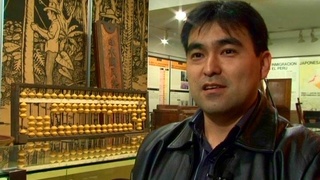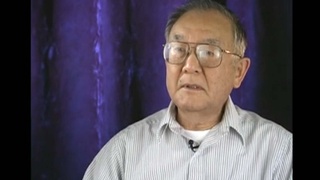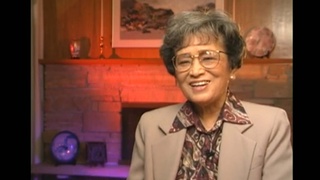Interviews
Different races have to live together and interact
To me, the United States is sort of a microcosm of the world of tomorrow, where all different races would have to live together and interact, and be able to get along with each other. That’s exactly what the United States has to do, and that’s exactly what the world needs to do. Because you can’t say, I’m Japanese, you’re Chinese, we’re different, and then start keeping apart.
I could still remember so many other Asians who really came to fight for the Japanese American Redress Movement, and they didn’t have to. They were not getting anything out of it. But they really felt, on principle, that they need to be active in it, and I feel the same way about their concerns. And for that reason, I think the future of Japanese Americans is really no different than the future of any other ethnic group in the United States, and no different than, say, the nations in the world, because the whole idea is to get along.
Date: July 1-2, 1998
Location: California, US
Interviewer: Mitchell Maki, Darcie Iki
Contributed by: Watase Media Arts Center, Japanese American National Museum
Explore More Videos

Growing up with some Japanese families (Spanish)
(b. 1950) Nisei Chilean, Businessman

The various realities of Nikkei in Latin America (Spanish)
(b. 1950) Nisei Chilean, Businessman

Relief fund to support Japanese communities (Japanese)
(1900–1996) The mother of Nikkei Brazilian immigration

Role of Assistancia Social dom Jose Gaspar (Japanese)
(1900–1996) The mother of Nikkei Brazilian immigration

To be a Nikkei is a confluence of cultures (Spanish)
(b. 1974) Director of Ryukyu Matsuri Daiko in Peru


Changing Minds
(1923–2006) Community activist. Co-founded the Manzanar Committee

Prevailing Within the System
(1923–2006) Community activist. Co-founded the Manzanar Committee

Fighting For What’s Right
(1923–2006) Community activist. Co-founded the Manzanar Committee

Evolving History
(1929 - 2014) One of the earliest proponents behind the redress movement.

Support from the Japanese American community
(b.1971) Professional figure skater and Olympic gold medalist.

Need for Monetary Compensation
(1923–2008) One of the leaders behind the redress movement.

Erasing the Bitterness
(1923–2008) One of the leaders behind the redress movement.


